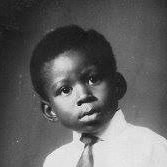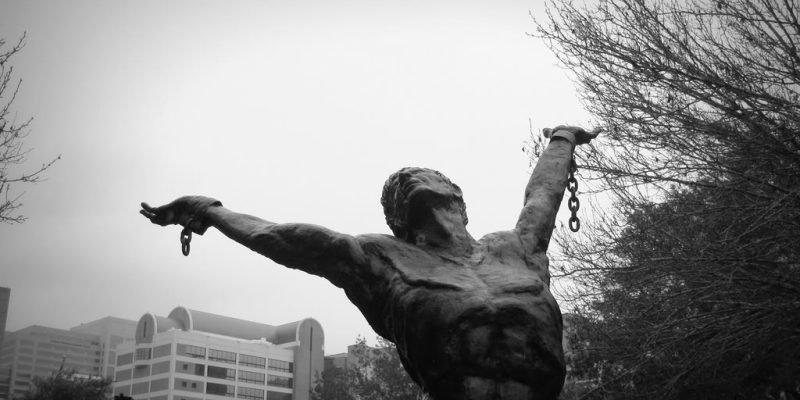These were the words that race through my consciousness as I left his presence utterly mortified by what I had just seen. Ecce Homo: he lay there horribly incomplete and totally oblivious of my presence.
Motivated perhaps by the quite ordinary impulse to say “something” or driven by anguished profundity – “at every turn living redefines life and death even more so” reverberated in my mind.
I felt a visceral and twisted admixture, of fear, pain, rage, outrage, and numbing shock. I had refused to believe that I was true, at least not that true, at least not that true. I could philosophically accept that he was dead-we are all mortals after all but not that type of death.
People get translated in all languages, dispatched by different couriers, and killed by many poisons – but this was death most spectacular.
This piece, in the light (or darkness) of the circumstances, and belated as it might seem, is tragically inevitable. In spite of the surfeit of eulogies, the now receding wails of distress and the raging controversy over who killed him, I feel compelled to write “something.”
I do not, for one deluded minute, think that my contribution will add anything of exceptional value to all this, because even as I write, I am not at my logical best. It is difficult to be clinically detached when you have lost a colleague and friend.
Well, Ugbekpe Ekperi is all behind us now. And, perhaps by an ambivalent stroke of fate, a bout of food poisoning kept me hospitalized and away from the graphic anguish of his interment.
All that remains now apart from his physical legacies, are memories, and of course, simmering controversy. This is usually so with great men: they seldom expire quickly and unobtrusively.
Another colleague of mine likened his death to a national loss of innocence – the deflowering, if you like, of the maidenhead of naïve tolerance. I see it not unlike the ancient Greek myth about Prometheus.
Prometheus, according to the story, is supposed to have stolen fire from the Greek gods and given it to humanity. An engaged Zeus punished him by shackling him to a rock, and then sending an eagle to perpetually eat his immortal live which constantly replenished itself.
But in spite of this, the deed had been done, humanity now had fire. In this instance, the shirt sleeve of the nation has been ignited.
A promethean fire has been unleashed, smoldering insidiously at the very fabric of the nation. It is ironic really: whoever killed him wanted to literally snuff him out in a spectacular and didactic manner.
The pyrotechnics was for the benefit of the living – to serve as a singular lesson to us journalists perhaps. But far from being extinguished, the embers from his explosive death have been dispersed far and wide, each one nurturing a potential bon-fire.
Also ironically, one of the first signs of smoke has been from within the house itself. Chief Gani Fawehinmi, redoubtable lawyer and erstwhile counsel of Newswatch magazine, instituted legal action for the alleged murder of Dele Giwa.
And barely 24 hours after the application was filed, four Newswatch directors – Abdulaziz Ude the board acting chairman Ray Ekpu, Yakubu Mohammed and Dan Agbese – almost incredulously washed their hands off Fawehinmi’s brusque intervention but believed that “his (Fawehinmi’s) action can only have the effects of aborting the investigations and depriving Nigerians of the opportunity of learning the result of the police investigations.”
Coming from Newswatch, this hollow resonance sounded almost like a contradiction in terms. But then there is no smoke without fire, and I suspect that somewhere in Ugbekpe Ekperi, somebody must be turning in his grave. While the antecedents of the week preceding his murder tantalizingly point in one direction, the broad sweep of the other directions is too considerable to be ignored.
Some say he was killed because of bread-big bread – precise, a revealing story “The Big Wheat Rip-Off,” which appeared in an edition of Newswatch.
Others say the article early this year of the Johnson Mathey Bank multibillion naira fraud, was the reason why.
But the most interesting theory concern the mystery of an “undead” alleged drug courier, Gloria Okon, who is supposedly well and alive and living it up in London. The magazine is supposed to be on the trail of Gloria’s diaries in which the names of the wives of some top military officers are neck deep in narcotics are listed.
The casual linkage of any of these scenarios might be a moot point, but the veracity of each is worth considering. Nothing shocks me anymore about this country. But whichever way the chips fly, the source of that infernal parcel seems fairly balanced between the state and big business. Some argue that big business is the state.
Between these two lies the mystery of who killed Dele Giwa?
But the greater challenge lies with all well-meaning Nigerians who seek answers to the evil that has shrouded this country since independence. It would be sheer bluster to discountenance the afternoon of October 19.
I was rattled, badly rattled, but time has as always tempered the shock, and my conscience has again gained ascendency. Funny thing the conscience is, and even more inexplicable is the love for one’s country.
Both can over ride everything – even death. There is no last laugh as yet. Those who killed Dele have unwittingly unleashed a catalyst of change. They unfettered fire – promethean fire.



